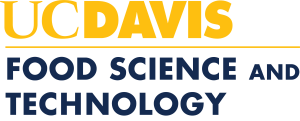What Can I Do With My Food Science Major?
The field of food science is essential in meeting the challenges of feeding a growing global population while considering health, sustainability, and consumer preferences. Combining food science with business skills can make you a valuable asset in the food industry, where scientific knowledge and business acumen are both crucial for success. Depending on your specific interests and career goals, you can pursue roles that leverage your expertise in food science while contributing to the growth and profitability of food-related businesses.
Here are some common food science careers:
- Food Technologists
- Food technologists work on developing new food products or improving existing ones. They are involved in all aspects of product development, from creating formulations to ensuring quality and safety standards are met. This role often involves collaborating with chefs, food scientists, and quality control professionals.
- Food Safety Specialist
- Food safety specialists focus on ensuring the safety of food products. They develop and implement food safety protocols, conduct inspections, and analyze food samples for contaminants and pathogens. This role is critical for preventing foodborne illnesses.
- Quality Assurance Manager
- Quality assurance managers are responsible for maintaining the quality and consistency of food products. They establish and oversee quality control processes, conduct audits, and ensure that products meet regulatory standards and customer expectations.
- Flavorist
- Flavorists are experts in creating and enhancing the taste and aroma of food products. They work with various flavor compounds and ingredients to develop unique and appealing flavors for food and beverages.
- Product Development Scientist
- Product development scientists work on creating new food and beverage products. They conduct research, formulate recipes, and conduct sensory evaluations to optimize taste, texture, and appearance.
- Food Chemist
- Food chemists analyze the chemical composition of food products, including the identification of nutrients, additives, and contaminants. They may also research and develop new food ingredients and processing methods.
- Sensory Scientist
- Sensory scientists study the sensory attributes of food products, such as taste, aroma, texture, and appearance. They conduct sensory evaluations and use statistical analysis to understand consumer preferences and perceptions.
- Food Microbiologist
- Food microbiologists focus on the study of microorganisms in food, including bacteria, yeast, molds, and pathogens. They work to prevent foodborne illnesses, spoilage, and contamination.
- Regulatory Affairs Specialist
- Regulatory affairs specialists ensure that food products comply with government regulations and labeling requirements. They work with regulatory agencies to obtain approvals and manage compliance for food products.
- Food Packaging Engineer
- Food packaging engineers design and develop packaging materials and technologies that protect food products, extend shelf life, and maintain product quality. They consider factors like sustainability and consumer convenience.
- Research and Development
- R&D food scientists conduct studies and experiments to advance knowledge in areas such as nutrition, food processing, and food safety. They often work in academia or research institutions.
- Food Safety Auditor
- Food safety auditors assess food production facilities to ensure that they adhere to food safety standards and regulations.
- Food Educator
- Food science educators teach courses in food science and related fields at universities, colleges, and vocational schools. They play a crucial role in educating the next generation of food scientists and professionals.
- Food Consultant
- Food consultants offer their expertise to businesses in the food industry. They may provide advice on product development, quality assurance, food safety, and regulatory compliance.
- Entrepreneur
- With a background in food science, you can start your own food-related business, such as a specialty food production company, a restaurant, or a food technology startup.
- Food Supply Chain Manager
- Supply chain managers oversee the movement of food products from production to distribution. They use their understanding of food science and business operations to ensure the quality and safety of products during transportation and storage while optimizing supply chain efficiency.
Career Resources
If you're considering a career in food science, there are several valuable resources and organizations that can provide information, networking opportunities, job listings, and professional development support. Here are some career resources for food science students and professionals:
- UC Davis Internship and Career Center: Visit the ICC Food and Beverage webpage to explore careers in the food and beverage industries and meet with a career advisor for professional guidance.
- Institute of Food Technologists (IFT): IFT is one of the largest and most prominent professional organizations for food scientists. They offer a range of resources, including webinars, publications, networking events, and job boards. IFT's website also provides information on scholarships, certifications, and continuing education opportunities.
- The Occupational Outlook Handbook provides detailed information about career options in agricultural and food sciences. Be sure to check out the “Similar Occupations” tab on each page to explore related fields.
- LinkedIn: LinkedIn is a valuable platform for networking and job searching in the food science industry. Join food science-related groups, follow relevant companies, and connect with professionals in your field.
